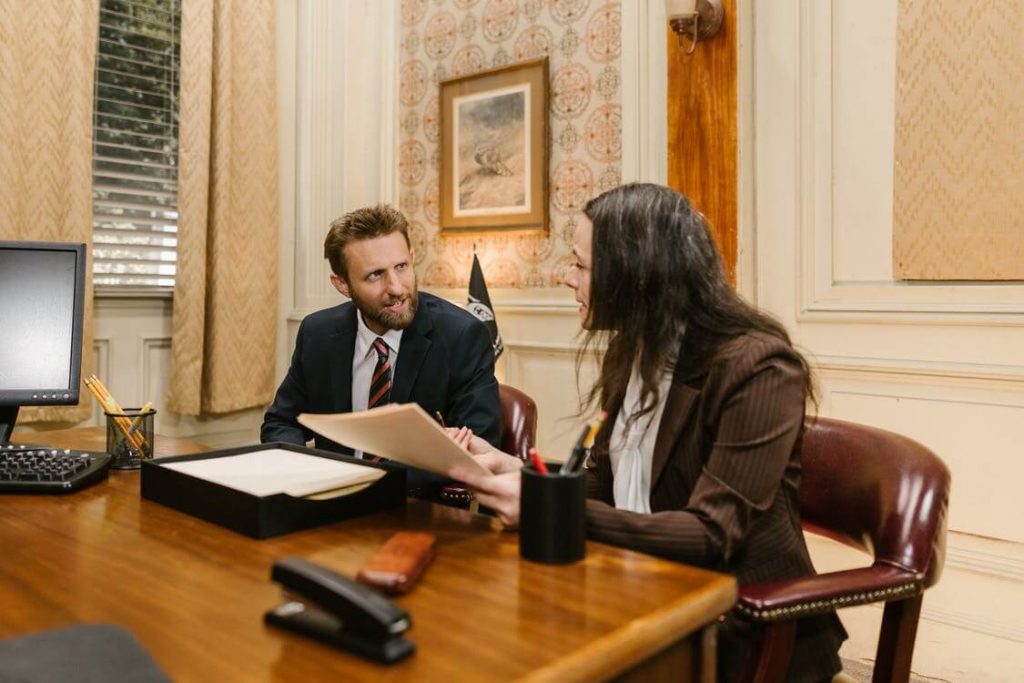Some people find out that common law in BC is serious in a harsh way. People must protect themselves with a cohabitation agreement. But to be honest, very few people do.
The most important thing to know is that there is no such thing as a common-law spouse. Instead, you should say you are in a marriage-like relationship.
To have a married spouse, you need to get married! It seems simple, but people we speak to in Vancouver and Surrey get this confused all the time.
You can reach out to this BC family lawyer if you have questions. Use the contact form.
Questions To Ask About Spousal Relationship
- How does the division of property work for unmarried couples?
- What should you do when the relationship ends?
- Can you create a domestic agreement if you are not married? How much is it?
- If you have a child together, how will the parenting time work if you separate?
- What is the Supreme Court, Court Of Appeal, and Provincial Court?
Common-Law Relationships in BC
No one thing will prove you and another person were in a common-law relationship. How the parties to the relationship conduct themselves matters. It is what establishes a common-law relationship. This is as opposed to something else, such as a dating relationship.
Factors a court might look at to determine common-law relationships in BC:
- Residing in the same home
- Sleeping together
- Sexually active together
- Holding themselves out to the public as spouses
- Purchasing gifts for each other
- Acquiring assets together
- Share financial responsibilities
- Shared parenting of children born of the relationship
A driver’s license showing the same address and joint bank accounts should be organized. We are also looking for shared utility bills and rental leases.
Any other documents indicating the couple share their lives. This can be used to prove a common-law relationship.
Common-Law Relationships in BC
Important legal rights could be lost if you are unable to prove you were a common-law couple in British Columbia. You need advice from a lawyer familiar with the laws in British Columbia. Also, this information would be about common-law relationships.
The lawyer would be experienced in proving the existence of such relationships. Further, this is essential to protect your property and financial rights.
There is no such thing as a common-law separation in BC from a legal point of view. If there is a legal issue, you can hire a lawyer to do a separation agreement.
However, you do not need to file paperwork with the courts when you separate from your common-law partner.

What is a spouse?
Some mistakes hurt your chances of settlement.
Whether you are married or living in a common-law relationship, splitting up through a separation is never easy.
The break in the emotional bond uniting a couple is usually accompanied by shared parenting of children and financial issues that must be reconciled before you and your spouse or partner can move on with your lives apart from each other.
The key to a successful breakup is to avoid the following mistakes frequently made by couples.
Mistake #1: Letting emotions influence your decisions
Anger, guilt, and betrayal are only a few of the emotions you might experience upon realizing that your relationship has come to an end. Those emotions affect the decisions you make.
For example, the guilt you might experience from believing that you contributed to the end of the relationship could cause you to not fight for the fair division of assets to which you are entitled.
Never make an important decision during the breakup when it could be influenced by emotions.
Relying upon the advice of friends could help, but the risk is that friends might feel obligated to agree with you or might also be affected by the anger and other emotions you are feeling.
You’re better off relying upon someone you trust to give you good, reliable advice, such as a lawyer practicing family law.
Common-law relationships in BC are serious, but most people don’t treat them that way.

Mistake #2: Trying to negotiate a settlement without a lawyer
As cordial and amicable as the split might be at the outset, you need to know your rights and how to protect them. Your relationship with your children and your future financial security and independence is affected by decisions you make during your breakup.
Negotiating directly with your spouse or partner is a mistake that could have long-term repercussions for you and your children.
A consultation with a lawyer who practices family law provides valuable information about the division of assets, custody, visitation and support issues that must be resolved regardless of whether you are separating or ending a common-law relationship.
Mistake #3: Moving out of the house before all issues are settled
Moving out of the house before all financial and child custody issues are resolved could impair your rights.
This is particularly true when custody of a child is in dispute. Courts consider the best interests of a child and make an effort to maintain stability. The relationship each parent has with the child is an important factor as is the fact that one parent is the primary caregiver.
Remaining in the home prevents your relationship with your children from being affected. If you feel threatened by your spouse or partner, a lawyer can help you obtain a restraining order from a judge. Violation of a restraining order is grounds for arrest.
You might be thinking about how long you need to live together to be common law. And that after a certain period, like six months or two years is coming up, so you want to quickly move out of the house. This does not make sense from a legal point of view.
Mistake #4: Turning the children against the other parent
One of the factors judges take into consideration when deciding custody issues is the conduct of each parent in fostering and maintaining a child’s relationship with the other parent.
Attempting to turn your child against your spouse or partner or limiting access to the child could cause a judge to deny custody to you.

Don’t Hurt Your Chances of Settlement- Speak to a lawyer
An experienced lawyer is a good source of guidance and legal advice when splitting up. BC lawyers know the laws about separation and the procedures to follow to protect your rights.
There are three options when going to a family law court. You can hire a family lawyer, self-represent, or use legal coaching. This article will discuss the pros and cons of each.
A limited-scope retainer is the same thing as legal coaching. The lawyer is only being hired “at need.”
When most people contact a family law firm for the first time, they are very stressed out. They know they need to do something, but they don’t know where to begin. The other stress is how much the common-law separation is going to cost them.
There are several things that can make you common law:
- Filing tax returns together
- Sharing RRSPs
- Having an insurance policy under both of your names
- Sharing family property or inheritances
Common-Law Relationships in BC
We spoke to some organizations, like Clearway Law about common law in BC. Below is some information that we received.
When you hire a family lawyer, he or she takes on your case. The lawyer you hired becomes responsible for your case. They do the work and make decisions.
They often only speak to the client when they need information. It is for the best as your lawyer will charge an hourly rate for phone call updates.
A family lawyer might require a $5000 upfront payment (called a retainer) to represent you in court. Once the retainer amount runs out, they top it up.
This may be done automatically if credit card authorization is provided. Many people cannot afford this, so they turn to the other two options.
How long is common law in BC?
Because some people can’t afford a lawyer, they take the risk and self-represent in family court. If you have assets and/or children, this is not recommended.
If you have “nothing to lose,” then it may be okay to self-represent.
Common-law relationships in BC are complex, so speak to a lawyer. We can connect you with one.
You do not become common law in BC after six months, it’s way more complicated than that. Do not worry about “how long is common law in BC,” instead look at the whole picture.
Nothing in this article is legal advice, speak to a lawyer by contacting us. Common-law relationships are complex, so it’s important to get legal information.
Below are some things you want to think about:
- Is it likely that you might have to pay child support?
- How will the BC Family Law Act affect you?
- How will your situation vary from married couples?
- Do you need to pay spousal support?
- Will the Family Law Act (Canada-wide) affect you?












